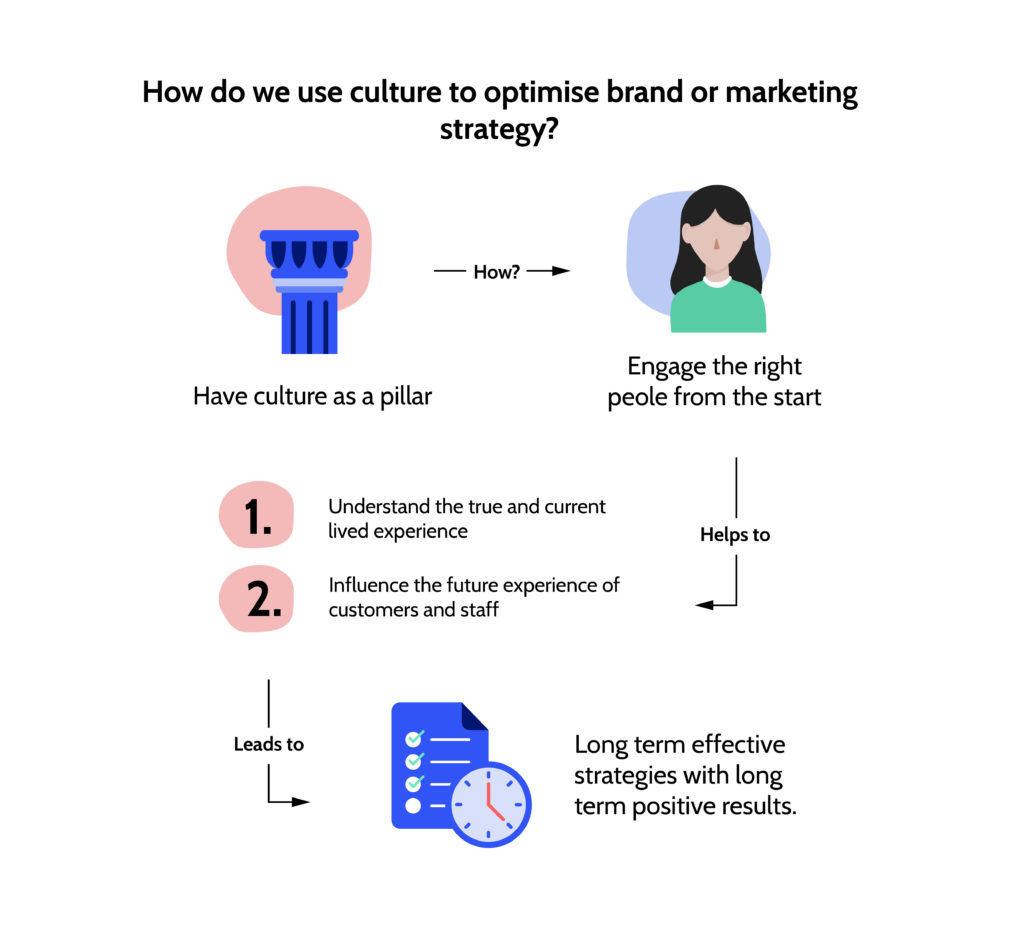Successful digital transformation relies on both culture and strategy. Here’s a short story that highlights how culture can impact strategy execution.
As the lights came back on, I looked around and I thought to myself, ‘yep, we’ve nailed it!’. There was a palpable energy in the room. They were familiar faces to some. And it was exciting to see them up on screen. Real customers, real consultants, real stories. It was a step away from the traditional campaign where we use celebrities to sell our products. Celebrities who would only use our product because we paid them… Now it was time to unveil the packaging overhaul. No more of that plastic, processed looking stuff. We were going ‘wholesome’…
Looking back on it, it was a great rebranding strategy and a compelling campaign. But there was a reason that it didn’t last. There was a reason that when the marketing team turned over, the brand and activity seemed to get diluted until it fell over completely and they went back to using celebrities for a short-term spike in numbers.
The brand strategy wasn’t a true reflection of company culture. And influencing a culture needs company-wide engagement.
What You Say Vs What You Do
A company brand relates to the external perceptions that customers and potential customers hold about that brand.
An organisation (or team) culture is represented by the internal behaviours that influence the experience of internal staff and stakeholders.
Brand is largely built around what you say and how you say it.
Culture is built around what you do and how you do it.
The organisation strategy encompasses all of the above
Rewriting The Job Description
All staff have a marketing function & culture is everyone’s responsibility.
All brand and marketing strategies are eventually rolled out by internal staff. In fact, every interaction people outside your organisation have with your company is an opportunity to influence reputation and perception. How would your payment terms, or your packaging or your interactions with the local barista reflect on your company’s culture?
Where there is alignment between brand and culture there is an obvious authenticity to all activities. This means that even when the head of marketing moves on, or there is significant staff turnover, the company does not need to skip a beat. Brand image is a true reflection of company culture and the next digital transformation project or campaign is an extension of that essence.
How Do We Use Culture To Optimise Brand Or Marketing Strategy?

Firstly, culture needs to be one of the key pillars in any strategic piece not just digital transformation strategy.
In order to do this, we engage the right people from the start. This means talking to a variety of people from a variety of departments, and even a variety of levels within the organisation. Think HR, Community Managers, Accounts, Sales etc. These various perspectives help to:
- Understand the true and current lived experience
- Help to influence the future experience of customers and staff
A strategy commonly defines external customer types and ways to communicate and appeal to them. But an effective strategy also defines the influence to internal behaviour and lived experience – what do staff need to do, at the operational level, to truly deliver on the brand promise. This helps to raise culture and lift brand authenticity and appeal. This leads to long term effective strategies with long term positive results.
But how do we engage the wider organisation? What should we ask them? And how do we lift the company culture in the new hybrid world??? Well, there’s a musing for another day.
Enjoy Reading About Culture, Strategy & Digital Transformation?
Here are some articles that you might like:
It all starts with strategy – By Rania Awad
4 Common Strategy Mistakes – By Byron Kelly
Effective Change Management For Digital Transformation – By Adrienne Tilley Le-fevre






Leave a Reply